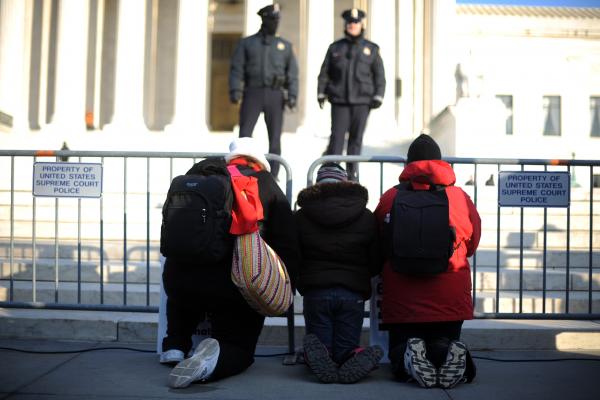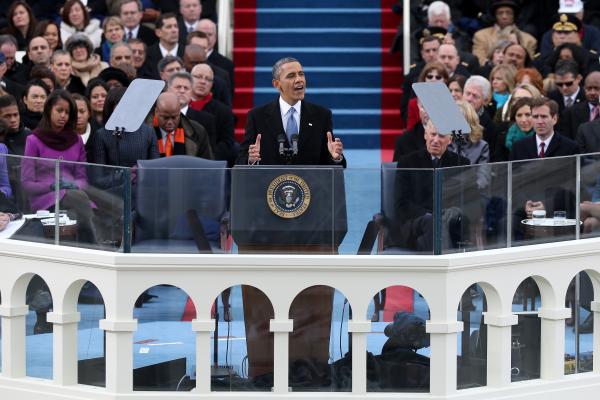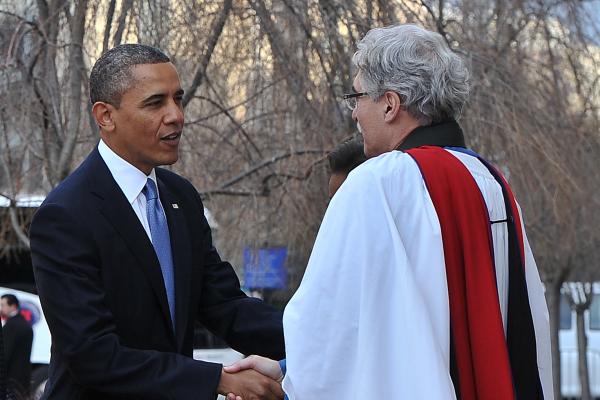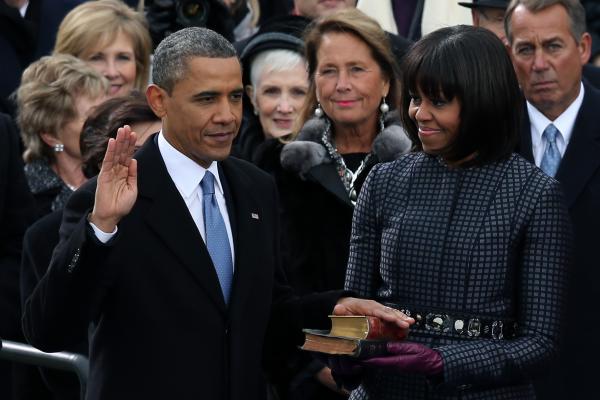Economist Joseph Stiglitz contends that the growing inequality in the U.S. makes an economic recovery more difficult and is leading to the death of the American dream.
“Politicians typically talk about rising inequality and the sluggish recovery as separate phenomena, when they are in fact intertwined. Inequality stifles, restrains and holds back our growth. When even the free-market-oriented magazine The Economist argues — as it did in a special feature in October — that the magnitude and nature of the country’s inequality represent a serious threat to America, we should know that something has gone horribly wrong. And yet, after four decades of widening inequality and the greatest economic downturn since the Depression, we haven’t done anything about it.”
This is a memorable week: on Monday the inauguration of President Obama on the holiday honoring Martin Luther King, Jr., and today, the 40th anniversary of the Roe v. Wade decision by the Supreme Court. Some people will celebrate all three with thanksgiving. Others will find nothing to celebrate – especially the decision of January 22, 1973 that struck down state laws banning abortion.
Another Inaugural Address
On Sunday, there will be another inaugural address – this one by Jesus at the beginning of his ministry (Luke 4: 14-21). After 40 days in the wilderness facing the devil, Jesus returned to his hometown of Nazareth and went to the synagogue. He took his place at the reading desk and someone handed him the scroll of Isaiah. The text says he “found the place where it was written.” Jesus read the text, handed the scroll back to the attendant and sat down. Everyone was looking at him – all those hometown folks who knew him as a child. Then Jesus said, “Today, this scripture has been fulfilled in your hearing.” That must have been a shock because the Isaiah text Jesus read proclaims more than anyone could see: good news to the poor, release to the captive, recovery of sight to the blind, freedom for the oppressed – and the year of the Lord’s favor. The hometown folks would have recognized the year of Jubilee when debts would be cancelled, slaves set free and the land allowed to rest. Jesus was making a very big claim!
How shall we interpret what Jesus said in light of our deep divisions over abortion? Is the fetus in the womb oppressed or is the pregnant woman denied choices oppressed? Is the woman captive to laws that restrict her access not only to abortion but to contraceptives? Or is the fetus a captive threatened with death? We have grown so accustomed to shouting slogans at one another that it has become almost impossible to have faithful conversations across our differences.
"Faith in America's Future" — that was the theme of Monday's inauguration activities.
Watching the prayers, the songs, the speeches, the crowd massed on the Washington Mall, I felt the faith. We don't have to hate each other. We can work together for a future that will be good for our country and for us as individuals. We can, as the President charged us to do, make the "values of life and liberty and the pursuit of happiness real for every American."
Inaugurations are times for setting aside differences and wildly celebrating. While Richard Blanco read his inaugural poem, even John Boehner looked teary-eyed.
The political divisions will be back in full force this week, of course. And yet we Americans are in the midst of some really big changes — changes that may make today's partisan squabbles look hopelessly antiquated in just a decade or two. Monday's events highlighted these changes.
I attended the Inauguration Ceremony today. It was thankfully not as cold as last time. But it was one of President Barack Obama's best speeches — strong, clear, even tough, in a good way. My favorite line was: "… history tells us that while these truths may be self-evident, they’ve never been self-executing; that while freedom is a gift from God, it must be secured by His people here on Earth."
In other words, God has made those principles always presented at inaugurals "self-evident" or ordained; but human beings must implement them. The president is saying that it is up to us to do that in our time. He elaborated. He was specific.
A presidential inauguration is by tradition the grandest ritual of America’s civil religion, but President Obama took the oath of office on Monday in a ceremony that was explicit in joining theology to the nation’s destiny and setting out a biblical vision of equality that includes race, gender, class, and, most controversially, sexual orientation.
Obama’s speech, his second inaugural address, repeatedly cited civic and religious doctrines — namely the God-given equality extolled by the “founding creed” of the Declaration of Independence — to essentially reconsecrate the country to the common good and to the dignity of each person.
It was a faith-infused event that recognized both the original sins as well as the later atonements of America’s history, especially on race, which was front and center as the nation’s first African-American president took the oath on the holiday commemorating the Rev. Martin Luther King, Jr.
And Obama and other speakers vividly traced the nation’s tortuous path from slavery to civil rights — from the Emancipation Proclamation 150 years ago to the March on Washington 50 years ago, the latter presided over by King.
Editor's Note: The following is a transcript of President Barack Obama's remarks following his swearing in during Monday's Inauguration ceremony.
THE PRESIDENT: Vice President Biden, Mr. Chief Justice, members of the United States Congress, distinguished guests, and fellow citizens:
Each time we gather to inaugurate a President we bear witness to the enduring strength of our Constitution. We affirm the promise of our democracy. We recall that what binds this nation together is not the colors of our skin or the tenets of our faith or the origins of our names. What makes us exceptional -- what makes us American -- is our allegiance to an idea articulated in a declaration made more than two centuries ago:
“We hold these truths to be self-evident, that all men are created equal; that they are endowed by their Creator with certain unalienable rights; that among these are life, liberty, and the pursuit of happiness.”
Today we continue a never-ending journey to bridge the meaning of those words with the realities of our time. For history tells us that while these truths may be self-evident, they’ve never been self-executing; that while freedom is a gift from God, it must be secured by His people here on Earth. (Applause.) The patriots of 1776 did not fight to replace the tyranny of a king with the privileges of a few or the rule of a mob. They gave to us a republic, a government of, and by, and for the people, entrusting each generation to keep safe our founding creed.
And for more than two hundred years, we have.
[continuted]
As our nation celebrates the legacy of Martin Luther, King Jr., I can’t help but wonder what injustices Dr. King would fight against today.
Would he rail against the “New Jim Crow” of mass incarceration, which disproportionately targets African-American men? Perhaps he would continue to speak out against the “most segregated hour of Christian America” — 11:00 a.m. on Sunday morning. After watching Les Miserables, I’d like to believe that Dr. King would focus on abolishing modern-day slavery.
Known as ‘Humankind’s Most Savage Cruelty,’ human trafficking is a global phenomenon driven by the profitability of sexual exploitation. From China to Washington, D.C., millions of men, women, and children are forced into sexual slavery each year.
Likewise, in Les Mis, we meet Fantine who unjustly loses her factory job and then, out of desperation, turns to prostitution to support her child. While she chooses to sell her body, the realities of poverty do not leave her with other options to earn a living. Not much of a choice, I’d say.





